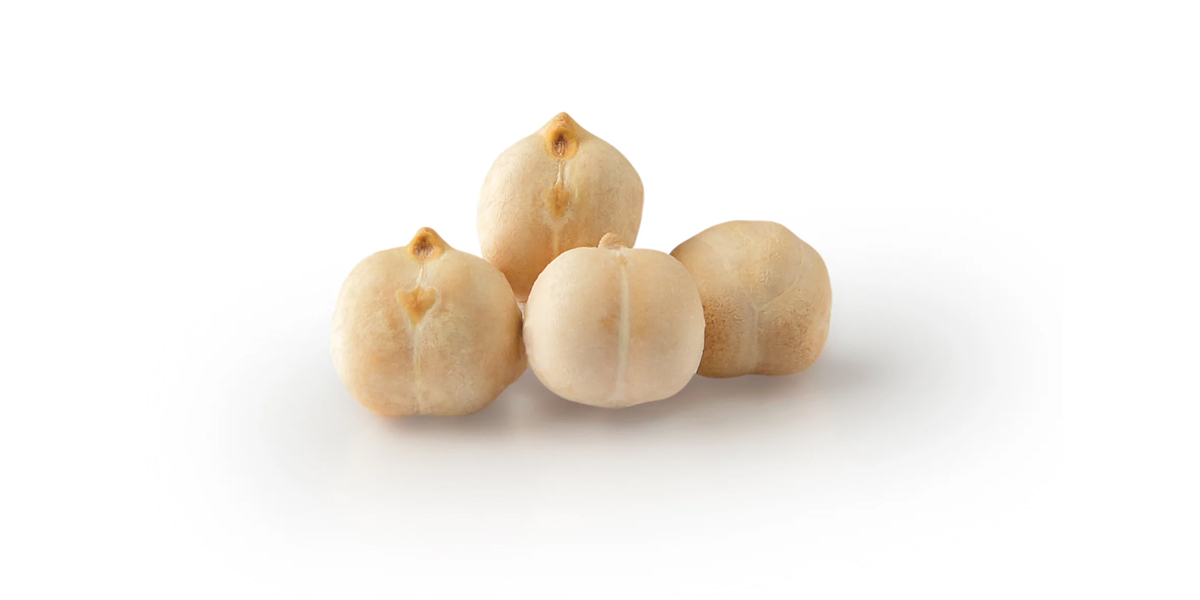№ 7 Legumes
LEGUMES

Remix
Ranking
#7
Essential Amino Acids
(EAAs)
8/9
Ratio of
Omega-6:Omega-3
see below
Legumes, which include beans, lentils, and peas, are a nutritious and healthy addition to your diet. They are high in fiber, protein, and antioxidants. They are low in fat and have a low glycemic index, which means they can help regulate blood sugar levels and may be beneficial for people with diabetes.
Here are some examples of legumes that are particularly nutritious:
Chickpeas
Chickpeas, also known as garbanzo beans, are a nutritional powerhouse and a staple in many cuisines worldwide. They are rich in plant-based protein, making them an excellent choice for vegetarians and vegans. Protein is essential for muscle growth, repair, and overall body function. Chickpeas are also a great source of dietary fiber, particularly soluble fiber, which aids in digestion, helps stabilize blood sugar levels, and supports heart health. These legumes are low in fat, particularly saturated fat, which contributes to heart health by reducing the risk of cardiovascular disease. Chickpeas provide essential vitamins and minerals, including folate, iron, phosphorus, and manganese, which play crucial roles in various bodily functions. Their versatility allows them to be used in a wide range of dishes, from hummus to soups to salads, making them a convenient and nutritious addition to your diet.
Edamame
Edamame, young soybeans, are a nutrient-dense snack that offers a host of health benefits. They are an excellent source of plant-based protein, making them an ideal choice for those looking to increase their protein intake while reducing meat consumption. Edamame is rich in dietary fiber, which supports digestive health and helps maintain steady blood sugar levels. These soybeans are low in saturated fat and contain healthy unsaturated fats, particularly polyunsaturated fats, which are beneficial for heart health and inflammation reduction. Edamame is packed with vitamins and minerals, including folate, vitamin K, potassium, and magnesium, which contribute to overall well-being. Consuming edamame as a snack or adding them to salads and stir-fries can be a satisfying and nutritious way to boost your daily nutrient intake.
Lentils
Lentils are a nutritional powerhouse among legumes, offering an array of health benefits. They are an excellent source of plant-based protein and are particularly rich in essential amino acids. This makes lentils a valuable protein source for vegetarians and vegans. Lentils are also packed with dietary fiber, both soluble and insoluble, which supports digestive health, helps maintain steady blood sugar levels, and promotes a feeling of fullness. These legumes are low in fat, particularly saturated fat, making them a heart-healthy choice that can help reduce the risk of cardiovascular disease. Lentils are rich in vitamins and minerals, including folate, iron, potassium, and magnesium. Their versatility allows them to be used in a variety of dishes, from soups and stews to salads and curries, making them a nutritious and delicious addition to your diet.
Legumes, like beans, lentils, and peas, contain lectins. Lectins are a type of protein found in many plants, and they play a role in plant defense mechanisms. Lectins can potentially cause digestive discomfort and may interfere with the absorption of nutrients. Lectins are water-soluble, so exposure to water removes them. Soaking, boiling, heating and fermentation help deactivate most lectins.